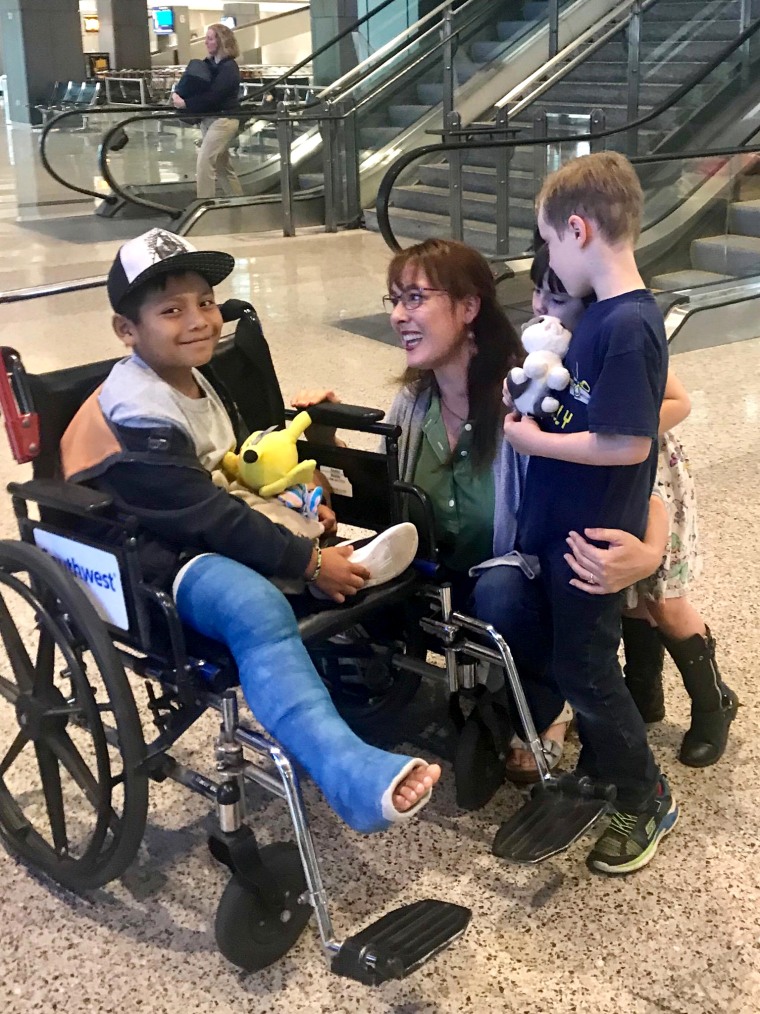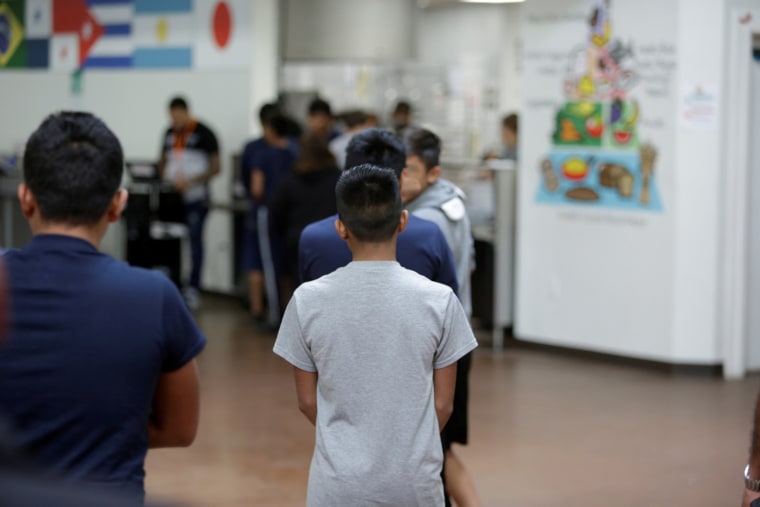AUSTIN, Texas — A Texas attorney, who secured the release of an immigrant boy from federal custody, now hopes to use that victory to remove teenage migrants without family in the United States from government shelters to live with sponsors.
Ricardo de Anda, a Laredo trial lawyer turned asylum attorney, persuaded a judge last week to allow Byron Xol, 8, to live with Holly and Matthew Sewell, a couple who did not know the boy before he came to the U.S. Byron had been in four different federal facilities for children for 11 months.
Although de Anda celebrated the judge’s decision to allow Byron to live temporarily with the Sewells, he said many teenagers who came to the U.S. without parents are living in federal custody with no family, relatives or guardians here to be foster parents, and face the danger of being deported when they turn 18.
At that age, the federal government removes them from its facilities for children and turns them over to Immigration and Customs Enforcement. ICE places the teens in an adult detention facility and begins expedited removal proceedings.
“There’s children 15- or 16-years-old who ran way or were abused, neglected and threatened by gangs, and thousands of children who have no one in the U.S. and no one to sponsor them,” de Anda told NBC News.
Immigrant teenagers have a year from when they come to the U.S. to claim asylum, but unless they have a lawyer who makes them aware, it’s unlikely teenagers will figure this out on their own, he said.

“This ruling can go a long way in placing children in the hands of American families who can not only care for them, but see they get their immigration status adjusted so they can remain here,” he said.
The government’s care of migrant children in its custody is in the spotlight following the death of a 16-year-old from Guatemala.
The teen, who arrived at the border unaccompanied by a parent or guardian, died at a Texas hospital after several days of intensive care at a children’s hospital. His death is under investigation and U.S. officials have released few other details.
His death follows the deaths of two young children who were in Border Patrol custody and a stillbirth in ICE custody. There also have been thousands of complaints of physical and sexual abuse from children who've been held in federal immigrant detention facilities.
"The death of yet another child in custody of our federal government is heartbreaking and raises many questions about how we are treating women, children and seniors in our custody," Rep. Raul Ruiz, D-Calif., said. Ruiz, who was an emergency physician, is working on legislation to provide medical equipment and training and other resources to Customs and Border Protection officials to address medical and humanitarian shortfalls.
In Byron's case, the Office of Refugee Resettlement had refused to release the boy to the Sewells because they were not relatives and did not know Byron before he arrived in the country. Byron's family had asked that their son be released to the Sewells.
ORR’s policy requires that sponsors be parents, legal guardians, immediate relatives or other adults who had a relationship with the family before the child came to the U.S.
ORR, which is part of the Department of Health and Human Services, declined an interview request on the decision in Byron’s case, and required questions be sent by email. The agency told NBC News it is reviewing its policy.
Essentially, ORR has two systems for releasing a child from federal custody. One is through a sponsor, who takes full responsibility and pays all expenses.
The second is long-term foster care. In those cases, the children are turned over to a fostering agency. The agency, licensed by the state, finds a parent who has been vetted and ORR pays for the long-term care. The long-term care often is what is used for a child whose parent was abusive, de Anda said.
In Byron’s case, De Anda argued that the law requires children in detention be promptly placed in the least restrictive setting. By refusing to allow the Sewells to sponsor Byron, the agency was violating that law, he said.
“If parents designate you to take care of their child, the government shouldn’t object,” he said, “but they should make sure you qualify and that’s because they have custody of (the child) at the time.”
Wendy Young, president of Kids In Need of Defense, or KIND, a group that provides legal representation to migrant and refugee children and advocates for protections for them, said her group has been encouraging ORR to open up more foster care placement for kids with no potential sponsors so they have a better living situation.
She said ORR has a very limited number of foster care placements and they usually are reserved for kids in "tender" years, are demonstrating a high degree of trauma or those with disabilities.
Referring to the practice of teens being transferred to adult detention facilities when they reach 18, Young pointed out its shortcomings.
"It's not like on your 18th birthday, suddenly you are mature enough to handle it," she said.
According to a 2018 report by KIND, a federal anti-trafficking law also requires that when unaccompanied children turn 18, ICE should consider placement in the least restrictive setting available after considering the teen's danger to self, the community and the flight risk.
De Anda said the death of the 16-year-old Guatemalan boy is a graphic example of the bad job being done by operators of the facilities where the children are kept, which he called “jails.” ORR contracts with third-party operators of the facilities where children are housed.
He noted that it took six days for Byron to get proper medical treatment and a cast on the leg he fractured while playing soccer.
“I think it’s urgent that these child prisons be emptied and these children should be placed with appropriate sponsors willing to care for them,” de Anda said.
FOLLOW NBC LATINO ON FACEBOOK, TWITTER AND INSTAGRAM.

